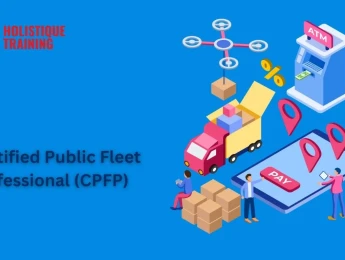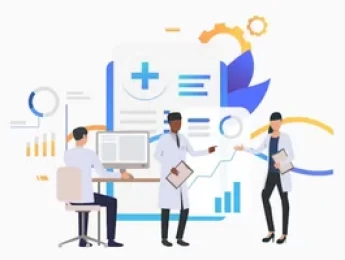Laboratories are vital to the medical and scientific industries. Valuable research, testing, and specimen development are conducted within a clinical laboratory, and without the correct management, the quality of these has the potential to fall drastically. If the quality were to drop, then any research conducted may be inaccurate and cause a domino effect throughout the rest of the medical organisation.
Laboratory management highlights many different areas of a laboratory's function, including planning and development, finances, team management, and quality assurance. It is crucial for those within management to comprehend the purpose of a laboratory and incorporate this purpose into a strategic plan regarding long-term goals and objectives. These goals also need to consider the laboratory's financial stance. Maintaining a high budget is mandatory for the processes to be carried out as quickly as possible with the maximum quality.
Furthermore, those within management must understand how to manage the employees within a laboratory. There are many different roles within a laboratory that all must work together to ensure cleanliness and productivity. Managers should also engage with employees to offer coaching and training wherever needed to ensure all skills and capabilities are up to standard.
Upon completion of this course, participants will be able to:
- Understand the vitality of effective management within a laboratory.
- Identify the typical processes and operations of a laboratory.
- Effectively manage teams within a laboratory, including constant development of employees and minimal conflict.
- Recognise the different necessities of management to ensure the laboratory will function at maximum efficiency.
- Implement processes to control costs and balance financial management.
- Analyse quality throughout all processes and make required adjustments to maintain quality assurance.
- Provide coaching and training to all employees to encourage personal development.
- Implement risk management plans to reduce all probable risks within the environment.
This course is designed for anyone within a medical setting who wishes to develop their knowledge regarding clinical laboratories. It would be most beneficial for:
- Laboratory Managers
- Laboratory Technicians
- Laboratory Scientists
- Research Scientists
- Operations Managers
- Pharmaceutical Managers
- Clinical Directors
This course uses a variety of adult learning styles to aid full understanding and comprehension. Participants will review case studies of real-world established laboratories to highlight key aspects of their management which contributes to their success.
They will be able to engage in a variety of learning methods and exercises including seminars, discussions, video materials and individual and group activities. This combination of activities will grant the participants the opportunity to fully develop their knowledge of the taught content and develop any related practical skills.
Day 5 of each course is reserved for a Q&A session, which may occur off-site. For 10-day courses, this also applies to day 10
Section 1: Fundamentals of Laboratory Management
- Identifying what services the laboratory carries out and their importance.
- Understanding how the laboratory fits within the medical organisation and its vitality within it.
- Explain the classification and structure of the laboratory and how this will dictate its management.
- Exploring internal and external factors and how they may influence the management of the laboratory .
Section 2: Operations and Processes
- Establishing short-term and long-term goals of the laboratory based upon its overall purpose.
- Translating purpose and overall goals into smaller, achievable objectives.
- Recognising what features contribute to performance – employees, finances, quality, equipment, and flexibility.
- Analysing influences on performances and understanding how to negate negative influences.
- Creating plans detailing goals and objectives aligned with the laboratory’s purpose.
Section 3: Team Management
- Exploring the different positions within a laboratory, their roles, responsibilities, and their necessity.
- Comprehending how different positions work individually and with one another to ensure processes function as needed.
- Communicating openly with employees to ensure a full understanding of management’s expectations.
- Providing coaching and training wherever necessary to ensure all employees’ skills are to a high level and standard.
Section 4: Finance Management
- Securing and maintaining sources of income – government budgets, research grants, private investors and more.
- Closely monitoring various processes to identify ways to reduce costs without sacrificing quality.
- Ensuring all policies and procedures are being followed to reduce the probability of risks and emergencies occurring.
- Manage and maintain all financial documents so they are secure and accessible to the necessary personnel.
Section 5: Quality Assurance
- Investing in new and reliable equipment and instruments to ensure maximum quality.
- Regularly monitoring the performance of employees and equipment to identify areas that are less than maximum productivity.
- Utilising available resources to improve certain functions to increase overall laboratory efficiency.
- The importance of balancing cost-effective and qualitative measures.
Upon successful completion of this training course, delegates will be awarded a Holistique Training Certificate of Completion. For those who attend and complete the online training course, a Holistique Training e-Certificate will be provided.
Holistique Training Certificates are accredited by the British Assessment Council (BAC) and The CPD Certification Service (CPD), and are certified under ISO 9001, ISO 21001, and ISO 29993 standards.
CPD credits for this course are granted by our Certificates and will be reflected on the Holistique Training Certificate of Completion. In accordance with the standards of The CPD Certification Service, one CPD credit is awarded per hour of course attendance. A maximum of 50 CPD credits can be claimed for any single course we currently offer.
- Course Code IND05-111
- Course Format Classroom, Online,
- Duration 5 days














